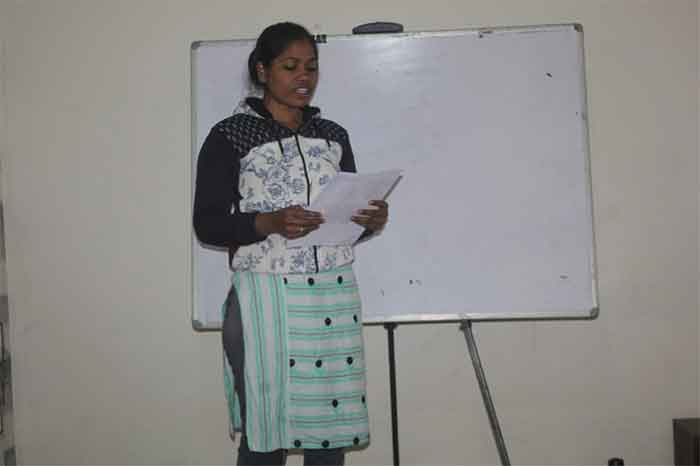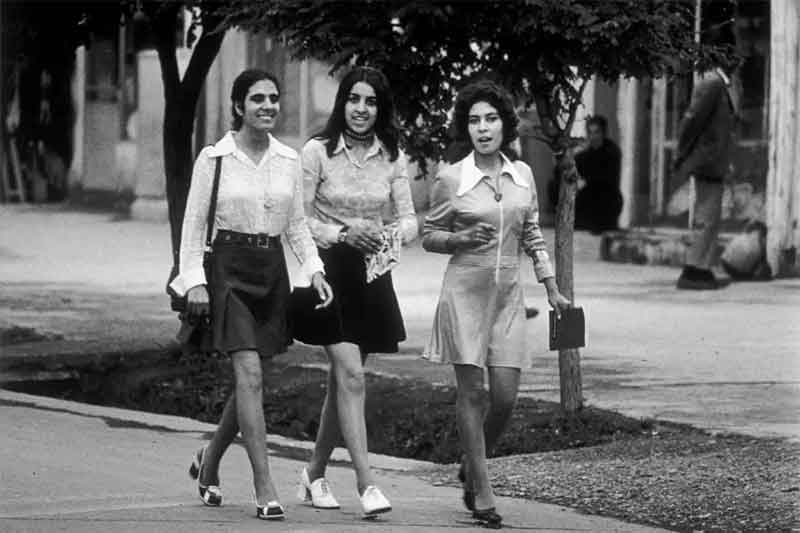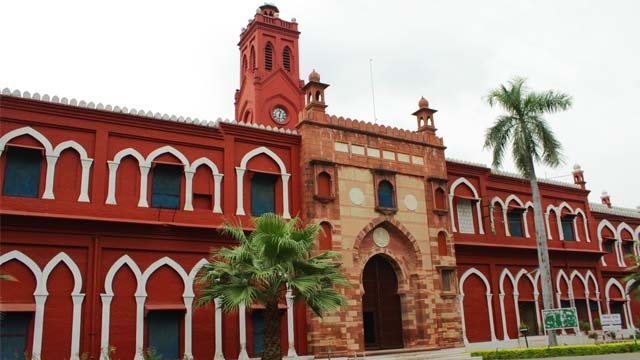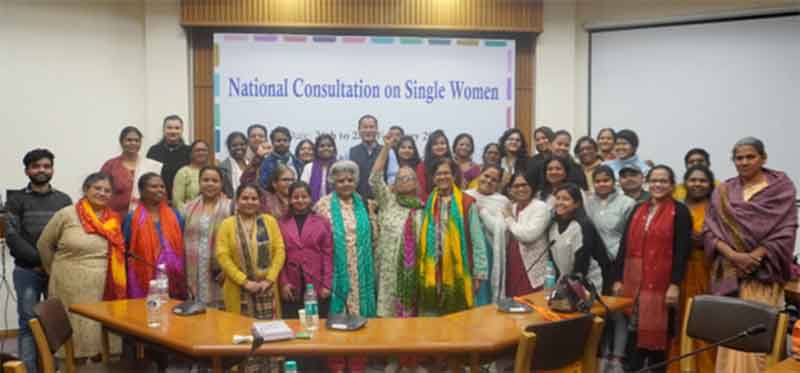
From being a school dropout in 8th standard due to molestation to working as a fellow for Udaan fellowship to spread awareness on molestation and sexual violence, here is the story of Swati Uike from Madhya Pradesh.
Swati Uike belongs to Khatma Kheda village, about 45 km from Harda district in Madhya Pradesh. Khatma Kheda has a large population of Scheduled Tribe, Gond being one of them. Swati comes from this tribe and is a daughter to a farm labourer and a homemaker, and sister to three more siblings. After her elder brother dropped out of school in 9th grade, Swati’s parents also decided to discontinue her studies. However, her determination to complete her education allowed her to overcome any barriers she encountered, until one day when all the courage she had was taken away.
Swati had to walk 8 km to reach her school, but her journey was marred by frequent instances of molestation and catcalling from boys along the way. Initially, she travelled alone, but as other girls drew inspiration from her, they joined her to school. Unfortunately, due to the relentless harassment, they faced every day, they eventually dropped out, unable to bear the discomfort any longer. However, Swati remained resolute in her determination to continue, until one horrifying incident shattered her spirit—boys publicly molested and harassed her, leaving her traumatized.
“Since my parents were not supportive of my studies, I was not able to share the incident with anyone. After the incident, I didn’t have the courage to go to school, and to prevent further harassment, I stopped attending school in 2015 after completing 8th grade, stating that I was no longer interested in studying,” Swati reflected on her experience.
It took Swati around 2 years to regain her courage and rebuild the confidence she once had. She found solace in an Asha worker in the village and confided in her about the reason she had left school. The Asha worker encouraged her to stand up against it. Subsequently, Swati shared her ordeal of molestation and obscenity by the boys with her parents and even discussed the possibility of filing a First Information Report (FIR) against those boys at the police station. Additionally, she went to the sarpanch and lodged a complaint about the incident. This prompted the sarpanch to take strict action against the boys and also resulted in increased police patrolling in the village and deserted roads.
In 2019, Swati also applied for the Udaan fellowship initiated by Synergy Sansthan, a local youth-led organization that enables rural girls to dream and lead. As a fellow for two years, she worked with a group of 18 girls from her community towards increasing awareness of sexual harassment and molestation in her village. Meanwhile, she also completed her higher secondary education and is currently pursuing a Bachelor of Arts degree.
“Molestation or sexual violence against adolescent girls is not a trivial matter. Girls should always raise their voices against it. People often wrongly blame the girls and silence them, but the girls are not at fault,” Swati expressed. Recalling the struggles of her childhood, she also added that, “There was no school in the village, and nobody cared about educating girls.” Despite the lack of schools and resources in her village, she always found a way to pursue her dreams, even in the face of patriarchy and gender barriers. According to her, molestation is one of the primary reasons why girls drop out of school.
Twenty-year-old Shivam Srivas from the village admits that he used to tease girls standing on the streets, but he now realizes his mistake. He believes that such actions are a means of fun for boys, without considering the impact on girls. However, as boys reach the age of 18, they start gaining understanding and knowledge about the law. Their focus shifts towards studies and work, leading to a reduction in such activities among most boys. Shivam and other young people in the village consider sexual violence against girls as wrong. They believe that raising public awareness in the village can help the next generation of boys distance themselves from this evil. Moreover, parents themselves would encourage their girls to fight against it.
In this regard, Swati’s father, Bhaiyalal, says, “We are very poor. We get scared by the kind of discussions that happen about girls in society. We are more worried about our daughter settling down than her studying.”
Vimal Jat, the CEO of Synergy, highlighted how molestation can hinder the holistic development of girls and emphasized that “Girls aspire to study and progress to actively participate in democratic processes. Hence, it is the responsibility of both society and the government to ensure their security. The participation of women in nation-building is equally important as that of men. If these reprehensible practices force girls to drop out prematurely, they will never gain confidence, thereby hindering their ability to make independent decisions.” On the other hand, Suresh Singh Tomar, Joint Director of the Women and Child Development Department, states that efforts need to be made at various levels to prevent harassment.
Suman Singh, the media advisor in Madhya Pradesh’s School Education Department, pointed out that along with molestation, families burdening girls with the entire responsibility of household chores and farming can be another reason for their dropout. She emphasized that if molestation is preventing girls from attending school, it exposes our society’s weakness and shortcomings.
Swati’s incredible journey has had a profound impact on the mindset of the villagers. Currently, parents no longer restrict their daughters from attending school in the village. In Khatma Kheda, there are 55 young people, including 25 girls. Remarkably, only two girls have dropped out of school, while out of the 30 boys, nine have discontinued their studies. The girls in the village attribute this positive change to Swati’s inspiring courage. They consider her a role model who has paved the way for their education. Swati, now 20 years old, aspires to apply for more scholarships, continue her own studies, and motivate girls from her community to do the same.
The article has been written under Sanjoy Ghose Media Awards 2022.
Ruby Sarkar is an independent writer from Bhopal, Madhya Pradesh. Share your feedback at [email protected]
Charkha Features















































